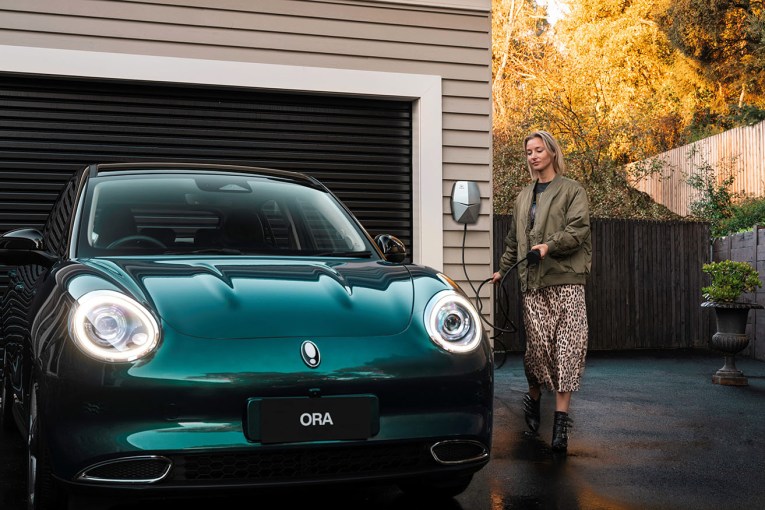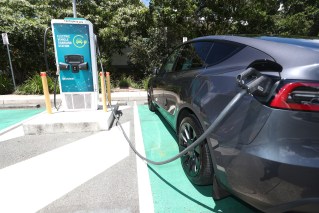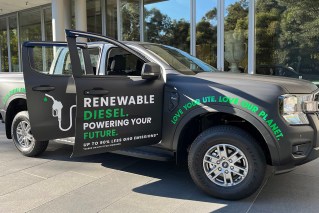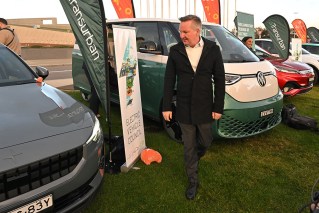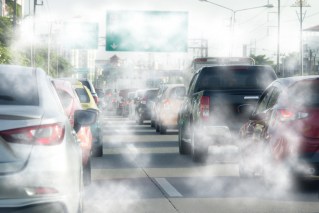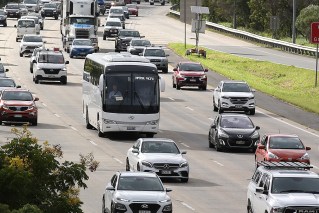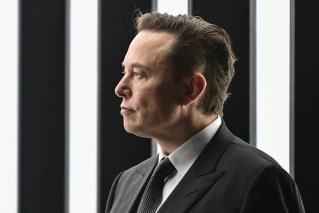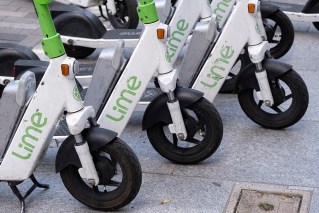Watch as a $70,000 car is crashed into a wall to keep you safe
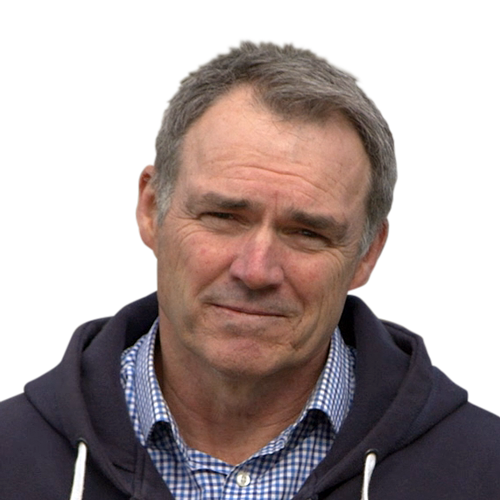
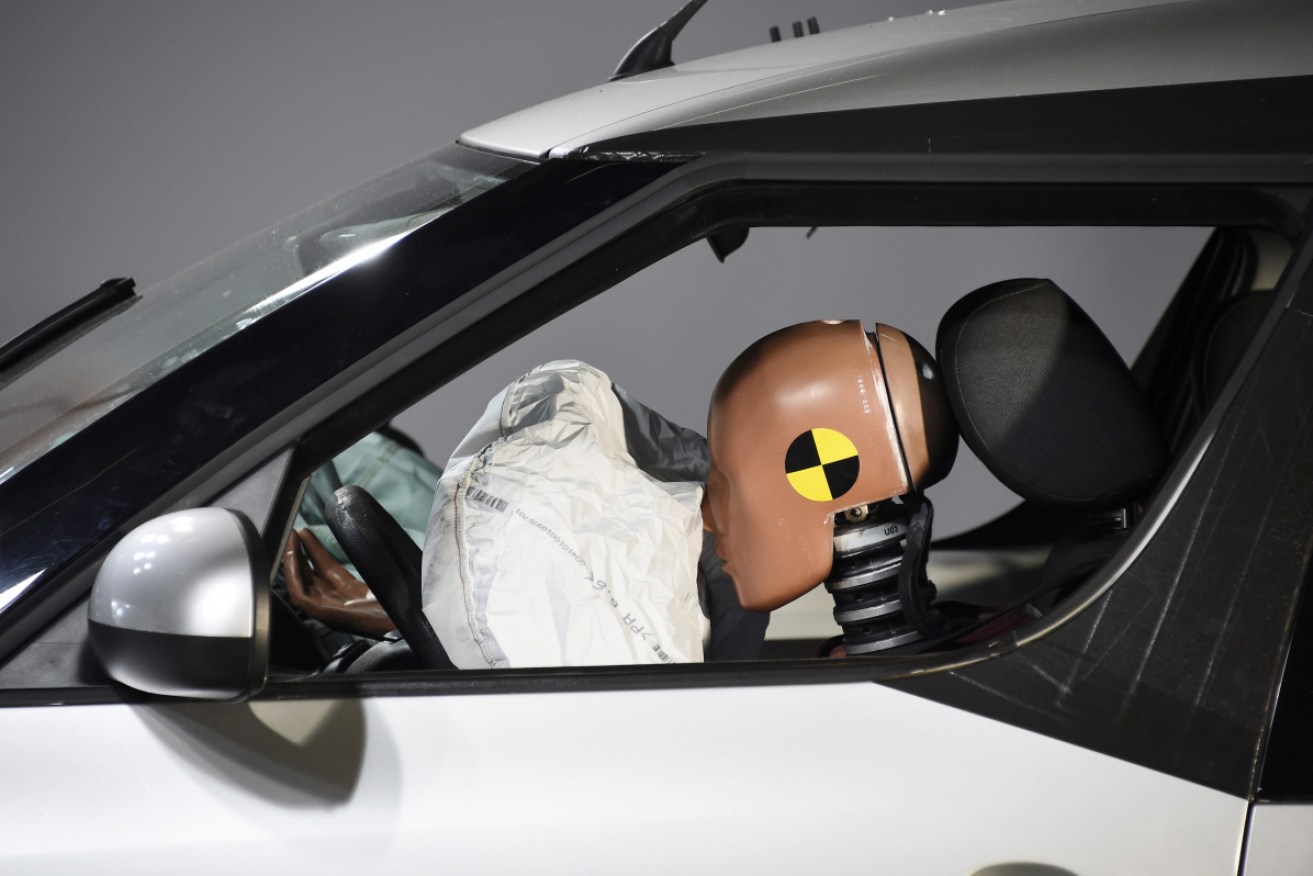
The New Daily was front and centre for ANCAP's crash testing of a luxury car. Photo: Getty
Watching a car die is a shockingly violent experience – even when it is happening in a controlled environment and all for a good cause.
It’s April 2018 and The New Daily is at an independent crash lab in western Melbourne to watch a $70,000 Genesis G70 luxury car be run into a wall at 60km/h.
The lights go dark in the control room, making the focus on the brightly lit crash zone even starker.
The car is dragged to the wall on a chain, appearing in our vision from the right then: BOOM! It hits, stopping instantly. A dull but all-encompassing sound echoes to us.
The G70 rebounds slightly from the wall and comes to a stop, shards of bodywork and headlights scattered about. Within seconds, replays are showing the impact.
The front of the car flattens in milliseconds. The three dummies are flung forward, the two in the front burying their faces in the airbags. All three are then snapped back into place by their seatbelts as the load limiters fire.
Once the all clear is given, engineers emerge from the control room and crowd around the wreck. Some are from the Australasian New Car Assessment (ANCAP) Program and its partners.
Some are from Hyundai, the parent company of Genesis. This is the first time the G70 has been tested outside the confines of Hyundai’s own crash labs, so it’s a big deal.
It’s also the first time ANCAP has conducted a full-frontal impact test and the first time two adult female instrumented dummies have been used in an official test. One is situated in the driver’s seat, the other in the rear outboard seating position. Previously, only child dummies were used in the rear seat.
It’s all part of ANCAP testing to determine if the G70 is worthy of the maximum five-star rating, something car manufacturers know is key when it comes to gaining buyer confidence in their new models.
“It’s important to use different dummies to represent the community, and we can capture different data on how they respond in different crash scenarios,” ANCAP chief executive James Goodwin explained.
“In the rear-seat we are concerned that the technology that has been going into the front seats – load limiters, seatbelt pre-tensioners – are often not included in the rear seats
“We should be as safe sitting in the rear seat as we are sitting in the front.”

The front of the car was flattened in the blink of an eye. Photo: ANCAP
All up, ANCAP will crash five G70s over the next months and write off four of them. The testing of this one car will cost $550,950. That cost can go up or down depending on whether ANCAP buys the cars it crashes or they are supplied on a randomly selected basis by the manufacturer.
It’s understandable the independent agency has a long list of government and private partners supporting its work. In 2018 the federal government committed to a new $6.64 million five-year deal.
Late in 2018, after the physical wrecks are microscopically examined, the films reviewed and the data farmed from the sensors and dummies – each worth $500,000 – riding in the cars when they crashed, Genesis will get its five-star rating.

The moment of impact for the Genesis G70. Photo: ANCAP
Which all adds to the marketing and advertising message that will be disseminated by the Korean brand to the public and the media when the G70 is launched in June.
“Twenty-five years ago, ANCAP started as a bit of a troublemaker,” Goodwin said.
“They were trying to make the car industry aware, ‘Are you really selling the best and the safest vehicles that you can?’
“But it’s evolved. It has become a far more professional and almost a quasi-regulatory body.”
Goodwin is a smooth talker, just as a former Canberra press gallery TV journalist should be. His confidence in the power of ANCAP obvious. After all, here’s a global automotive behemoth choosing to test its new luxury car in Australia first, rather than America or Europe.
But ANCAP keeps upping the ante on testing, keeps making the bar higher for car manufacturers to reach five stars. That costs money and is starting to create pushback. One company, ironically, that has broken ranks and complained publicly about the issue is Hyundai’s local distribution arm.
We covered that story here, including Goodwin’s defiant response.
Goodwin makes it clear he sees only opportunity for ANCAP. It is looking to expand its footprint to crash test light trucks and eventually even autonomous cars that people will ride in but never drive.
“In the future, if no-one owns a car, we are still going to be using vehicles as a service,” he said.
“When you are ordering a ride-share you should be able to know the safety rating of that vehicle, or even choose what you prefer.”
